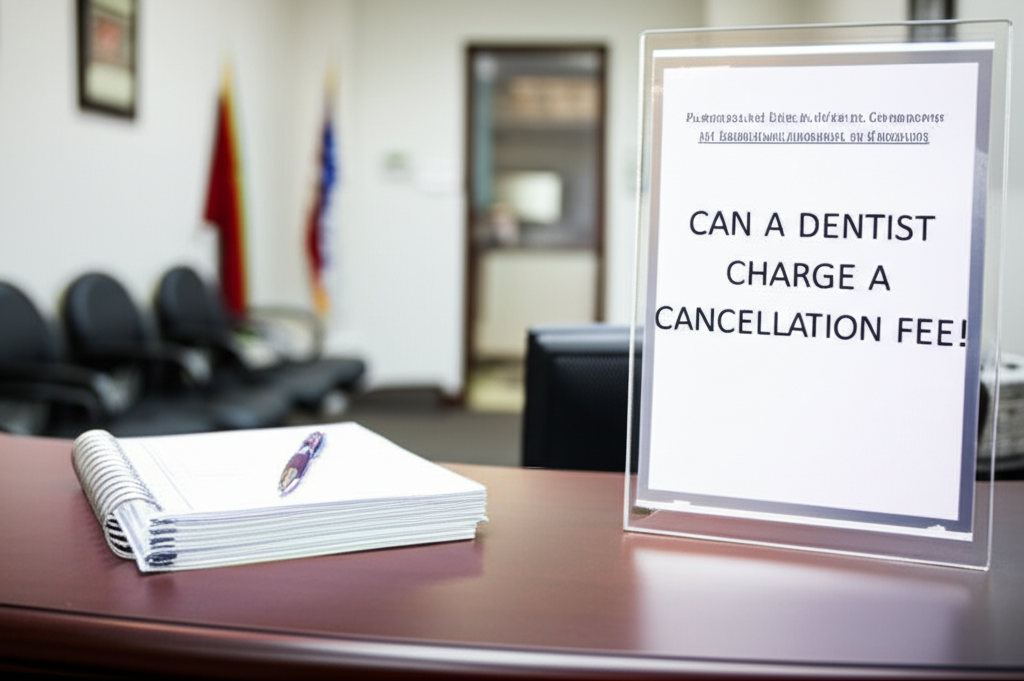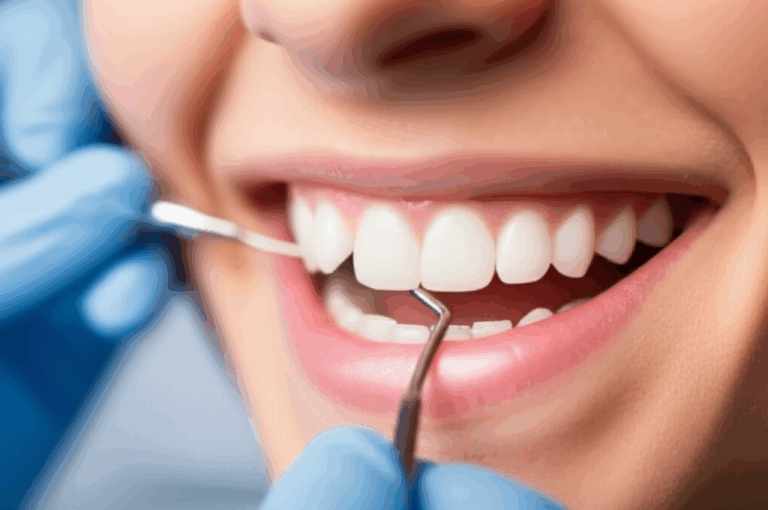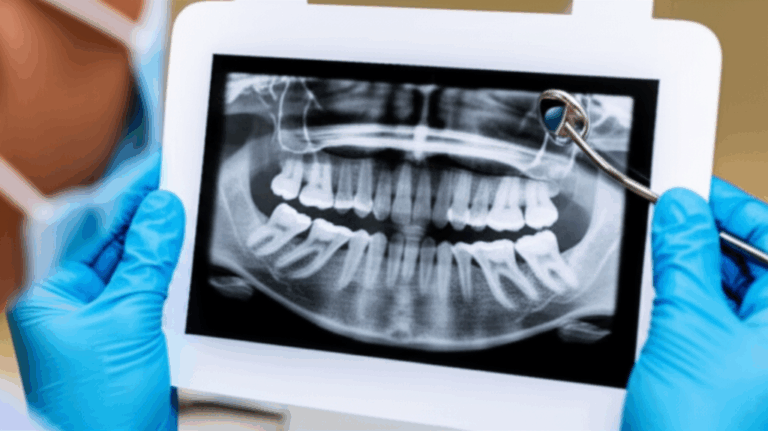
Can a Dentist Charge a Cancellation Fee? Your Rights, the Rules, and Real Solutions
You finally made that dentist appointment—maybe it’s a check-up, a cleaning, or something bigger like a crown. But then things don’t go as planned. Maybe your child wakes up sick, work calls you in early, or you just forget. Later, you notice: a bill for a missed appointment. It feels unfair, maybe even a little shocking. Can a dentist really charge you a cancellation fee? Is it allowed? Do you have to pay for time you didn’t use?
You’re not the only one asking. Lots of people now wonder about dental cancellation fees, bringing up the topic everywhere from online groups to small claims court. Whether you’ve just got a bill or you’re worried it might happen, this simple guide will tell you what’s true (with some facts that might surprise you), help you know your rights, and give you easy tips to avoid these fees—while still getting along with your dental office.
In This Article
- Dental Cancellation Fees: A Common Frustration
- Why Do Dentists Charge Cancellation or No-Show Fees?
- Are Dentist Cancellation Fees Legal?
- How Much Is a Typical Dental Missed Appointment Fee?
- Your Rights and Responsibilities as a Dental Patient
- How to Avoid Paying a Cancellation Fee
- What to Do If You Disagree with a Dentist’s Cancellation Fee
- Frequently Asked Questions and Real-Life Tips
- Empowering Takeaways: Keep Smiling and Stay Informed
Dental Cancellation Fees: A Common Frustration
Let’s be honest—life often messes up our best plans, especially when it comes to dentist appointments. You might have planned it for weeks, only for something urgent to pop up. When you end up with a charge for missing or canceling, it can feel really annoying and a little personal.
But here’s what’s real: dental cancellation fees are much more usual than you may think. In fact, about 70% of dentists and medical offices have some kind of no-show or late cancellation rule—usually with a fee. For most, it’s not personal, but just part of staying open.
Before you get upset, let’s bust some myths. Are these fees even allowed? Do you have to pay no matter what? Or can you do something? Let’s take a closer look and get some answers.
Why Do Dentists Charge Cancellation or No-Show Fees?
Imagine you’re a dentist. Your day is all planned out, your team is there, and some patients are waiting for earlier times. When someone cancels at the last minute—or just doesn’t show up—you’re left with free time, wasted effort, and workers who still need to be paid.
It’s not only about one missed person. Some dental clinics see 10-30% of patients not show up, especially new ones. If one $150 slot is missed, and this happens a lot, soon the business is in trouble.
Why do dental offices charge cancellation fees?
- Lost Money: Dental offices lose money when a time slot is empty. Rent and staff costs don’t pause if a patient does.
- Wasted Work: Rooms are cleaned and ready. Tools may be set up, sometimes special materials have been bought.
- Lost Chances: Someone else could have used that time, maybe even someone with pain.
- Staying Open: Too many no-shows can put small offices in danger—hurting everyone on the team.
Think of a missed appointment fee like the deposit some restaurants take for big tables. It helps keep things fair for everyone.
Still—there’s a difference between fair and being too strict. That’s where your rights matter.
Are Dentist Cancellation Fees Legal?
Here’s where things can get tricky. Yes, dentist cancellation fees are usually allowed—as long as you know about them before you’re charged. How this works depends on a few important things, like local laws, dental board rules, and the rules you agreed to when you became a patient.
Let’s keep it simple:
1. Agreement
- When you visit a new dental office, you sign some papers. Somewhere in there? Usually, there’s a note about missed appointment or cancellation fees.
- You have to agree: Offices can only use a policy you said “yes” to, so double-check those forms! If you didn’t see or agree to a fee notice, you might be able to argue.
2. State Rules
- Some states set limits on these fees. Others don’t.
- Some places need rules to be really clear (like posted notices or bolded on the form). If this wasn’t done, the office may be in the wrong.
3. Dental Ethics
- The American Dental Association (ADA) says dentists should clearly explain their policies and keep fees fair.
- Good dentists try to be understanding, especially in real emergencies.
4. Clear Rules Matter
- If you’re shocked by a fee, it could be because the office didn’t warn you well. That might help you fight the charge.
Bottom line: A dentist can charge a cancellation fee if the rule is clear, fair, and told to you before. If not—say something!
How Much Is a Typical Dental Missed Appointment Fee?
Not all cancellation fees are the same. Here’s what you can usually expect:
Average Fee Ranges
- Regular Cleaning: $25 – $75
- Harder Procedures (root canal, surgery): $50 – $200+ (sometimes a flat rate, sometimes a part, like 20% of the cost)
- Long Visits (many hours): Fees can be much higher, up to $500 for special surgeries
Quick Tip: If you’re booking more serious dental work, always ask about their cancellation rules—especially when special supplies or lab work are involved. (If you want to know more, see this crown and bridge lab guide.)
Insurance: Will They Pay?
Short answer? No.
- Dental and health insurance almost never covers fees for missing your appointment. This is your bill.
Is the Dentist’s Fee “Fair?”
- Usual fees: Most cancellation fees are $25–$100 for normal visits. If it’s a lot higher, you might want to ask about it—especially for simple appointments.
- Good clinics: They explain the rules before, in writing and/or face-to-face.
Your Rights and Responsibilities as a Dental Patient
When you get medical care, you’re not just a customer—you’re part of a team. That means you have some duties, but also real rights.
Your Responsibilities
Your Rights
Think of this like a two-way street. Being respectful goes a long way with your dentist’s office.
How to Avoid Paying a Cancellation Fee
Here’s how to keep from being surprised by a charge:
1. Plan Ahead
- Save the appointment time right away in your phone or calendar.
- Set up two or three reminders: maybe one a week before, then the day before, and one an hour before.
2. Ask About Their Rules
- Not sure? Ask at the front desk:
- How much time do I have to cancel?
- Is there a fee if I have an emergency?
- Do you forgive first-time misses or sickness?
- Keep a copy of what you sign.
3. Get Reminders
- Many dental offices text, email, or call to remind you (sometimes using smart digital dental lab systems).
- Confirm when they send the reminder—it helps everyone stay on track.
4. Be Honest and Fast
- If something comes up, contact the office quickly.
- If it’s a real emergency, say what happened. Most offices are understanding for illness or a big problem.
5. Reschedule, Don’t Cancel
- If you know you can’t make it, try to move it instead. Some offices won’t charge if you reschedule now.
6. Remind Them of Your Record
- If this is your first time missing, let them know. They are nicer to people with a good history.
What to Do If You Disagree with a Dentist’s Cancellation Fee
Say you think you gave enough notice, or it was an emergency, but still got a bill. What can you do?
1. Talk First
- Call the office and ask for the manager. They can actually help, unlike the person who just answers the phone.
- Be nice and explain: “I canceled as soon as my child got sick. I know the rule, but can you help me out here?”
2. Ask for Proof
- Request a copy of the cancellation policy you signed. Was it in your paperwork? If not, mention it.
- Make sure their rule matches what they charge on your bill.
3. Try to Work It Out
- If you’ve been loyal or this is your first miss, politely ask for a one-time waiver or lower fee: “Could you skip the fee this time since I always show up?”
- Some places might let you use some of the fee for your next visit.
4. Fight Back If Needed
- If you think it’s unfair or never told to you, write your complaint to the office and your State Dental Board or Consumer Protection Agency.
- You could fight a pushed fee in small claims court (but this is very rare and most times things get fixed before it gets this far).
5. Keep Your Credit Safe
- If you don’t pay and it goes to collections, this could hurt your credit. Try to fix problems soon so you don’t get a bigger money headache.
Frequently Asked Questions and Real-Life Tips
Can a dentist send you to collections for a cancellation fee?
Yes, but they usually try to call or write more than once first. It’s not common, but it does happen. If you get collection papers, respond soon and clearly.
What if I get sick or have an emergency?
Most offices will skip the fee for real emergencies—like sickness or a family problem. Call as soon as you can, and tell them what happened.
What if I never signed a policy?
If you didn’t agree to a cancellation rule, you can fight the charge. Ask to see what you supposedly signed.
Can I refuse to pay a dentist cancellation fee?
You could, but that could mean you can’t make new appointments there. If you leave the bill unpaid, it could go to collections.
Are there better options than strict cancellation fees?
Some offices have waiting lists and use them if there’s a cancel. Others warn repeat offenders, or use smart reminder systems (like those used in a top china dental lab) to quickly lower missed appointments.
Empowering Takeaways: Keep Smiling and Stay Informed
Dental cancellation fees can feel like just another problem on top of dental worries and packed schedules. But they help offices stay open, pay workers, and give quick help for other patients—maybe even you one day.
Here’s what you should remember:
- Dentists can charge a cancellation fee, but only if it’s told to you in advance and is fair.
- You should always know the rule and can stand up against sudden or unfair charges.
- Most dental staff are kind—being careful and honest makes waiving fees or working something out much more likely.
- Plan ahead: set reminders, check the rule, and talk to them early if something goes wrong.
- If you’re ever unsure about crowns, bridges, or need to learn about dental work, don’t be shy about checking information from a zirconia lab for more reading.
Being an informed patient is your superpower. The more you know about these rules and your rights, the easier it will be to handle surprise fees (or avoid them for good).
So the next time your dental appointment pops up, you’ll know just what to do, who to talk to, and how to keep your bank account—and your smile—safe.
Getting ready to schedule with confidence? Take a second to look over your clinic’s rules, set reminders, and don’t be afraid to ask questions. Your dental team really is there to help—after all, great smiles come from teamwork, good talking, and a little planning.








